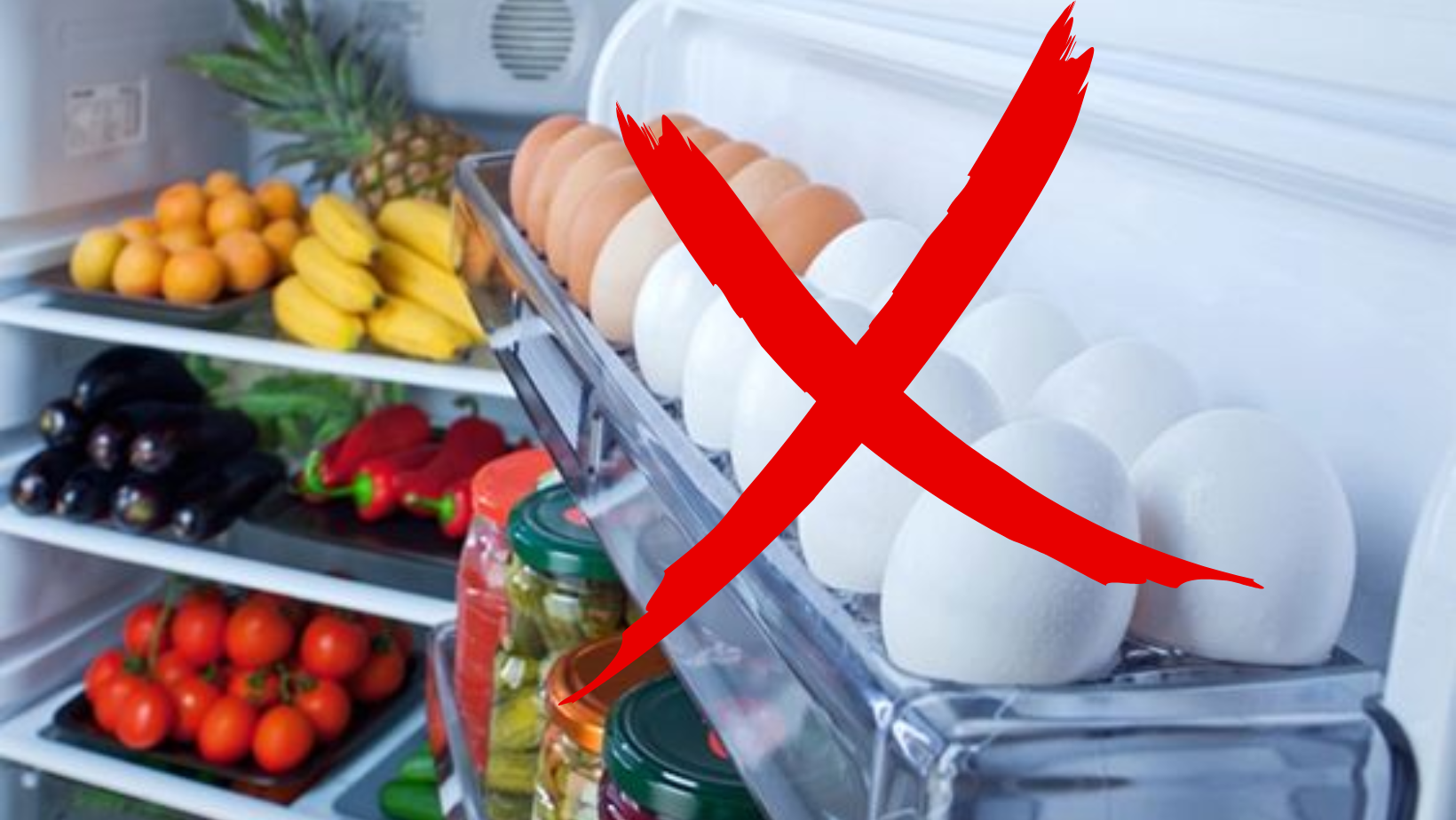Eggs are better stored in the refrigerator than at room temperature, but don't store them in the door. Why shouldn't you store eggs in the refrigerator door?

Why shouldn't you store eggs in the refrigerator door? The refrigerator door has an unstable temperature, making eggs spoil more easily.
If not stored properly, eggs will quickly spoil. In a 1994 British study, scientists looked at the relationship between temperature and shelf life of eggs and found a formula to calculate the safe time period for egg consumption.
They advise eating eggs before the yolk membrane breaks because then the egg will spoil very quickly. The higher the temperature, the more likely the yolk membrane will break.
Refrigerator manufacturers often design egg compartments in the refrigerator door, leading most people to assume that this is the ideal place to store eggs. However, food and nutrition experts say that the refrigerator door is actually a terrible place to store eggs, according toDaily Mail.
Vlatka Lake, sales director at Space Station, a preservation company, said the refrigerator door is the area with the most unstable temperature, with erratic temperature changes due to opening and closing the refrigerator. If stored in this position, eggs will become more susceptible to spoilage.
In addition, frequent opening and closing also puts force on the cabinet door, causing the eggs to shake and reduce quality.
Explaining why eggs should not be kept in the refrigerator door, Dr. Ta Tung Duy (Vietnam Institute of Applied Medicine) shared that although the refrigerator door is the place where people usually store eggs, this place often changes temperature with each opening and closing, bacteria can easily grow and weaken the protective layer of the egg, thereby increasing the risk of infection, causing the egg to spoil quickly.
The best way to preserve eggs is to place them in special trays, with the lids closed to avoid absorbing the odors and flavors of other foods in the refrigerator. Egg trays/cartons should be placed in the middle or deeper part of the refrigerator, and the temperature should always be kept stable below 20 degrees Celsius.
It is certainly better to store eggs in the refrigerator than outside. According to Dr. Duy, many studies show that fresh eggs stored at room temperature will lose quality after a few days and should be used within 1-3 weeks.
Meanwhile, eggs stored in the refrigerator will maintain their quality and freshness longer, at least twice as long as eggs stored at room temperature. However, experts say the maximum storage time for eggs is 3-5 weeks, avoid using eggs that are too old.
To better preserve eggs after purchase, egg experts in the UK recommend keeping eggs in their original carton, small end on top and large end on the bottom, then placing them in the middle compartment of the refrigerator.
In addition, to prepare more delicious egg dishes, let the eggs return to normal temperature for about 15 minutes before cooking, and should be used within 2 hours afterwards.
Storage time and how to identify spoiled eggs: